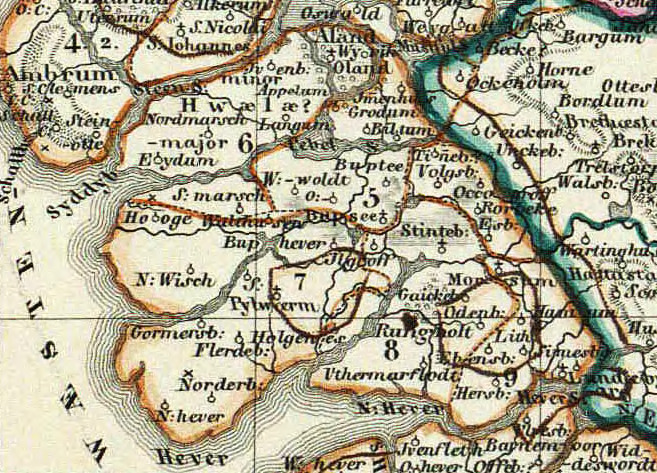According to legend, the medieval settlement was flooded because of the sinfulness of its inhabitants.
Archaeologists have announced the discovery of the lost city of Rungholt, flooded by the ocean. The once prosperous city in northern Frisia was swallowed by the North Sea in just one night after a violent storm – according to legend, this was a punishment for the sins of the inhabitants. Until today, the exact location of Rungholt was unknown.
According to folklore, drunkenness, impiety, and flaunting one’s wealth were among the chief sins of the townspeople. A life of abundance led to immorality, and the end came around Christmas when a gang of young drunkards tried to force a priest to give communion to a pig at a local inn. The priest went to church, prayed, and asked God to punish the young people.

The next day, the holy father allegedly left the city, and soon after that, a great storm broke out, which wiped Rungholt off the face of the earth. In medieval legends, it was said that later the sound of the city bell tower was heard from the depths of the North Sea.
Some historians doubted the city ever really existed, but new research has found the remains of “northern Atlantis” in the Wadden Sea. Archaeologists from the Christian-Albrecht University in Kiel have unearthed medieval burial mounds around the island of Südfall. The remains of settlements under the muddy bottom were discovered using several geophysical methods – magnetic gradiometry, electromagnetic induction, and seismic.
The finds are very serious – a harbor, the foundation of a large church, and drainage systems. Scientists continue to excavate Rungholt, but there is a problem – soil conditions, due to which the remains of buildings corrode. Most of the city seems to have already been lost but traces remain, writes Science Alert.

